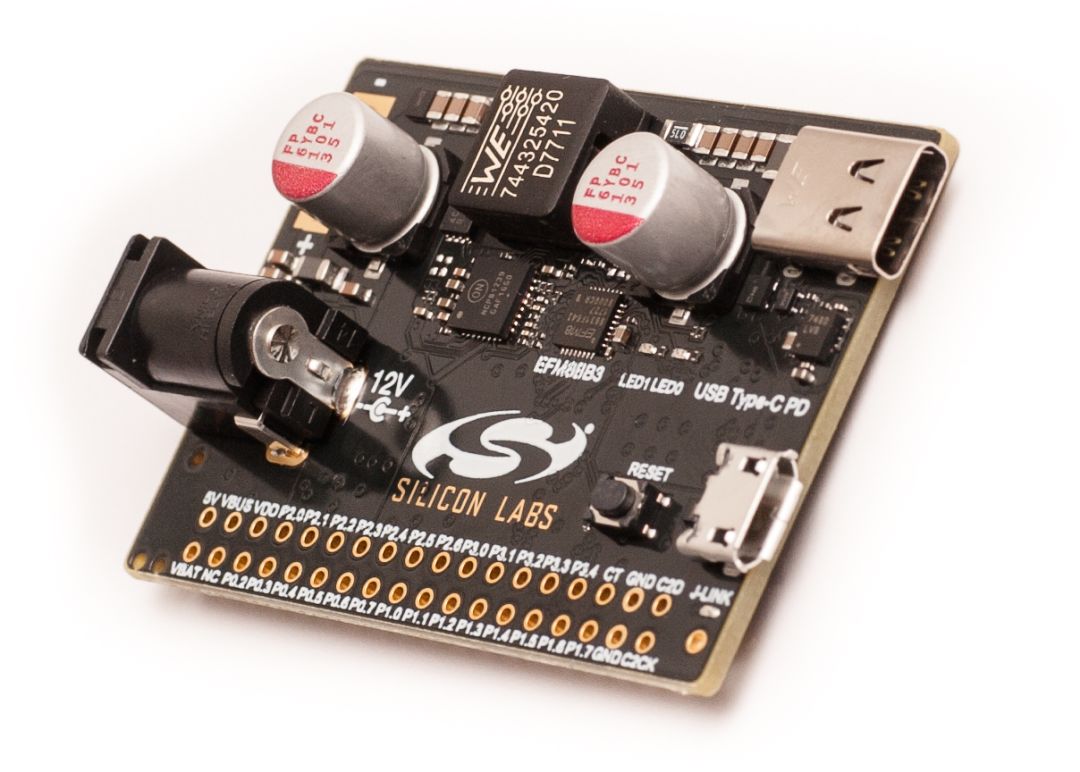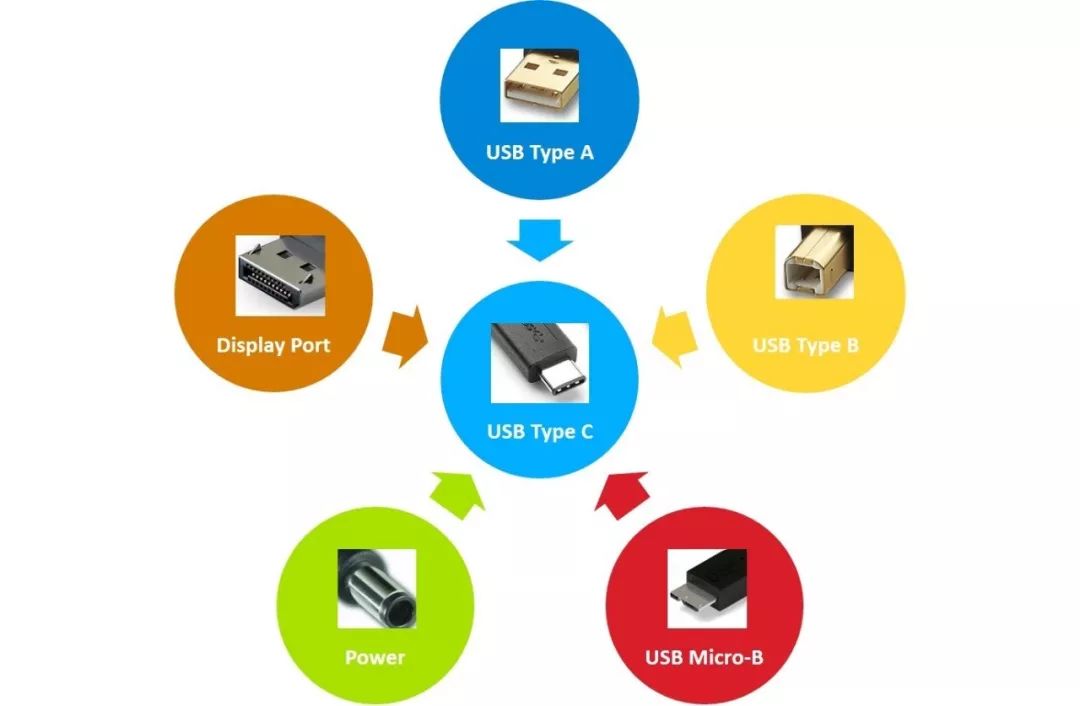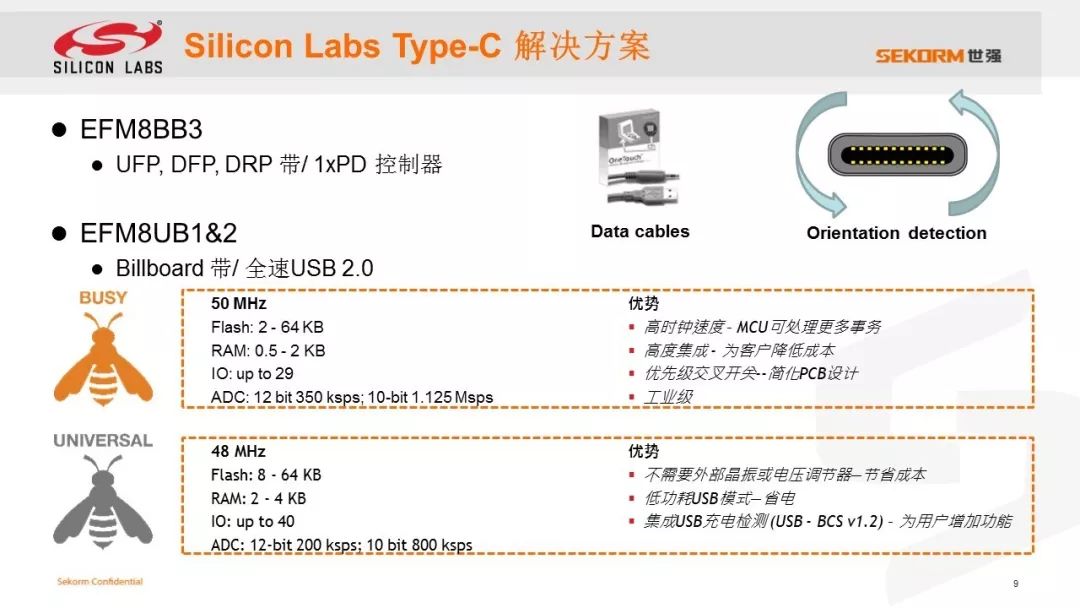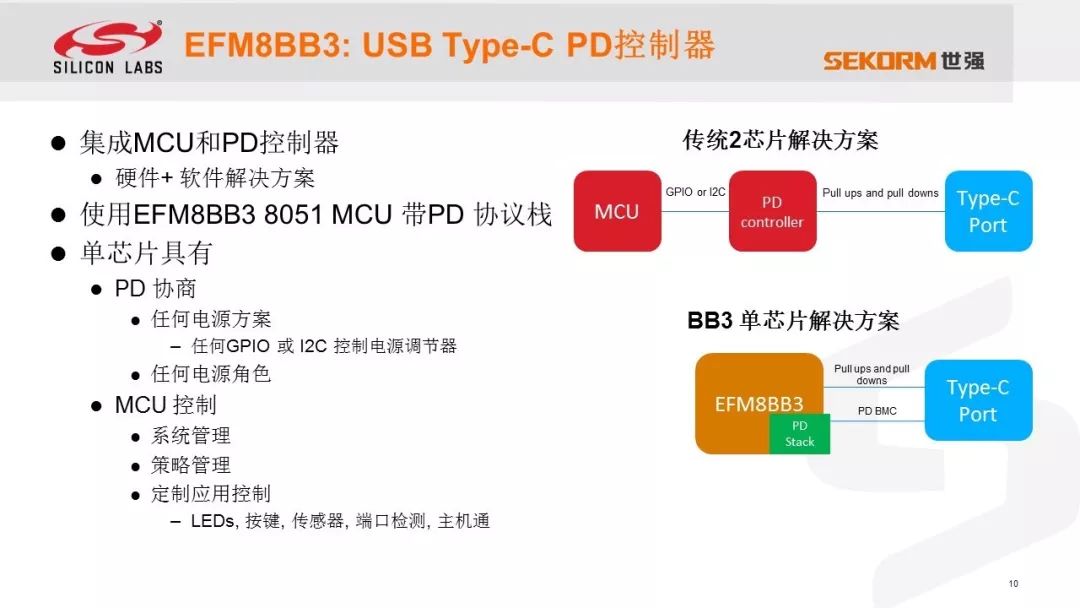
Silicon Labs (also known as “Core Technologyâ€) recently joined hands with its distributor partner Shiqiang Advanced Technology to participate in the 17th Power Management Forum organized by Shenzhen Electronic Engineering in Shenzhen and brought a theme: “Flexible USB Type-C Solution Simplifies Fast Charge Design." This presentation comprehensively introduces the USB Type-C solution based on Silicon Labs' ultra-low-power EFM8 8-bit MCU. We can provide a complete hardware reference design and USB PD software protocol stack, such as USB powered USB-IF certified Chip, USB TYPE-C to DP reference design and Billboard device reference design, USB type-C charging treasure reference design, etc., to quickly help engineers simplify fast charging design, shorten the time to market.

Silicon Labs and Shiqiang attend TechShenzhen forum and present USB Type-C PD reference design on site
USB Type-C standard: one connection all
The new USB Type-C standard has a wealth of features, including support for USB, power, PCIe and video transmission all-in-one USB connector specifications, ultra-thin design, reversible insertion direction, reversible line direction and other new features, its main purpose It is to simplify the connector design and meet more design requirements, such as video streaming, fast charging and so on.
USB Type-C is the second evolution of USB technology. It achieves higher data transfer rates (up to 10Gbps) than previous generations of USB connectors, faster charging speed (up to 100W via USB power transfer specification), and higher Elasticity and smaller size. End users will be able to replace a variety of chaotic and complex traditional cables through a single “full-featured†USB-C cable while enabling battery charging, audio and video, and data transmission. The ultra-thin USB-C connector features reversible plug and cable orientation, allowing developers to design thinner, more stylish products. USB-C can accommodate other interface specifications through USB replacement mode. For these reasons, USB-C is expected to become the connection standard of choice for mobile devices, PCs, docking stations, screens, and other consumer electronics. According to IHS forecasts, by 2019, about 2 billion devices will be deployed in the market. USB-C functional device.
USB Type-C provides end users with an easier experience by reducing the number of cables and allowing the devices to interact with each other. USB-C also supports multiple protocols and is backward compatible with USB 3.0 and 2.0 protocols. However, the simplicity and versatility of USB-C technology also poses a design challenge for developers. The once simple work of USB cables, ports, Dongle, and Hub must now be accomplished with more complex embedded components. Silicon Labs overcomes these design challenges by providing a straightforward, easy-to-implement, USB-IF-certified USB power transfer chip solution while accelerating time-to-market for USB-C systems.

USB Type-C standard brings together all kinds of transmission functions in one
Silicon Labs Type-C Solution
To meet the market potential for USB Type-C design requirements, Silicon Labs has provided multiple reference designs that significantly reduce the cost and complexity of developing cable and cable adapters that comply with the USBType-CTM specification. Silicon Labs' New USB Type-C Reference Design Features Cost-Efficient, Ultra-Low Power EFM8 Microcontrollers (MCUs), USB Developer Forum (USB-IF) Certified USB Power Transfer (PD) Stack, and USBBillboard Devices Source code.
The Silicon Labs reference design provides a complete solution for USB Type-C to DisplayPort (DP) adapters for linking with legacy devices that do not support USB-C. Qualified developers can obtain this reference design free of charge, including schematics, stacking libraries for the protocol, source code, sample code, and Simplicity StudioTM development tool licenses to quickly and easily design USB-C cables and adapters at the lowest cost Device.
Silicon Labs, on the other hand, also offers reference designs developed for the USBType-C rechargeable Li-ion battery pack for powering smartphones, tablets, laptops, headsets, and other portable devices. This reference design includes all the resources required for developers to create dual role port (DRP) applications using USBType-C Power Transfer (PD), which can accelerate the development of new USB Type-C Charging Po or the existing USB Type-A Charging Po Design migrated to USBType-C. Silicon Labs' USB Type-C Charger Reference Design includes the development board, USB Type-C PD protocol stack, sample code, schematics, and hardware manuals.

Based on the design advantages of EFM8 8-bit MCU
Silicon Labs' USB Type-C reference design uses the EFM8 BusyBee MCU as a PD controller to provide superior design flexibility by negotiating various power modes. The reference design can provide 15W (3A@5V) power and charge at 1.8A. In addition, the PD protocol stack only uses some MCU functions. Developers can use the remaining peripherals, memory, and processing power to control regulators and power ICs, detect directions, control switches, and update other host states.
By using the EFM8 Busy Bee MCU as a PD controller, developers can combine other useful features, including the use of on-chip temperature sensors and analog-to-digital converters (ADCs) to monitor the temperature and voltage of the battery pack to prevent overheating or overcharging.

Lead free Solder Bar is a solid solder bar,without flux, It was strictly following RoHS .WEEE directive and ISO14000 management system requirement
Product Brand:SnCu0.7.SnCu0.3.SnCu3.SnAg0.5Cu0.5.SnAg3Cu.SnAg4Cu.Sn Cu1Ag.
Sn Cu4Ag1.Sn Cu6Ag2.Sn Sb5
Lead Free Solder Bar,Silver Solder Bar,Solder Bar,Hot Bar Soldering
Shaoxing Tianlong Tin Materials Co.,Ltd. , https://www.tianlongspray.com